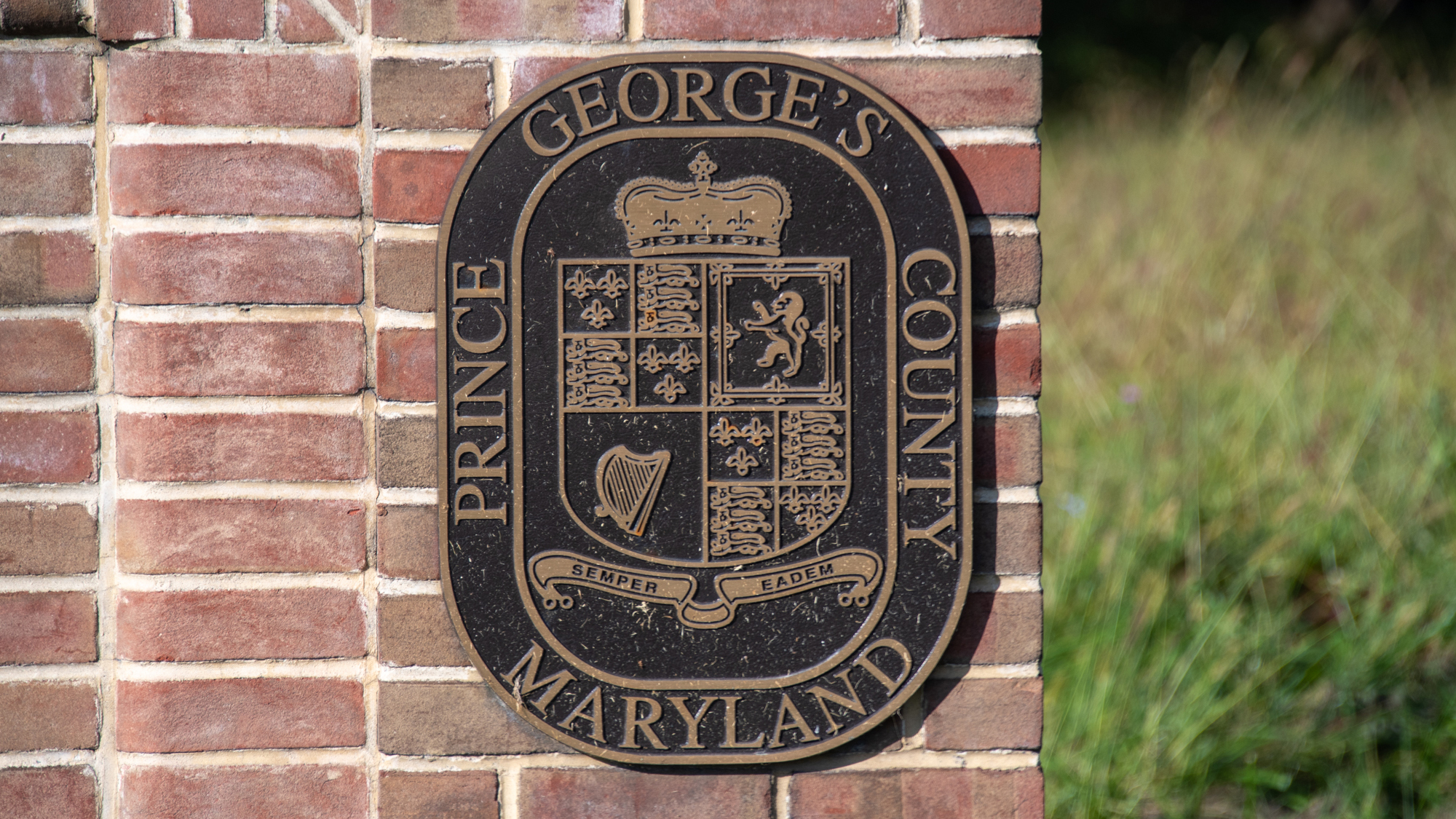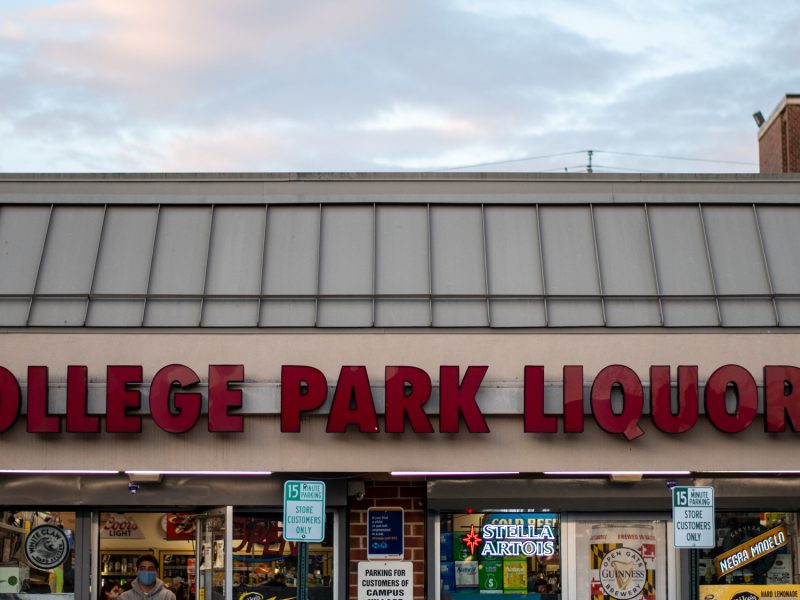Editor’s note: This story makes several references to the ways Prince George’s County has been misrepresented in local media. The Diamondback is no exception. Several times this year, as recently as earlier this month, The Diamondback abbreviated Prince George’s County in its coverage. We regret the errors and have changed our style to better reflect the community we serve.
When NBA superstar Kevin Durant released his Nike KD 8 “P.G. County” sneakers in 2015, he wanted to pay homage to his home of Prince George’s County.
After all, it was the place he found his first successes, becoming The Washington Post All-Met Basketball Player of the Year in 2006 and a nationally recognized college recruit out of high school.
But for some older Prince George’s County residents, the shoes were not an homage. They took issue with the abbreviation of the county to two letters — an abbreviation that brings back memories of a time when racial inequality in the county was palpable and stereotypes ran rampant throughout the metropolitan area.
“It’s Prince George’s County. It’s not P.G. County,” said Howard Stone, a county resident of more than 42 years and the county council’s committee director. “‘P.G. County’ harkens back to the days when Black folks … were not treated equitably, and this place wasn’t an accommodating place.”
Decades ago, Stone said, police brutality and other racial inequalities were associated with the phrase “P.G. County.” But through the work of elected officials over the years, the reputation has changed. Now, Prince George’s is known for being a dynamic community that has soared with economic development.
“We don’t abbreviate any other counties, and we deserve the respect to be called Prince George’s County,” Stone said. “I know a lot of people will say ‘What’s the difference?’ And to me, it’s a matter of pride.”
When Stone hears “P.G.,” he reflects on previous years, like the times The Washington Post referred to the county as the region’s “ugly sister.”
The Post first called the county the “ugly sister” on Jan. 9, 1981. The legacy of this displeasing nickname has carried on for decades and is one that Stone and many Prince Georgians haven’t forgotten.
In the article, reporter Neil Henry wrote, “[Prince George’s County] has long suffered a reputation as the ugly sister of national capital residences. It’s simply the kind of place where most people prefer beer to champagne.”
The following week, the paper published an apology alongside a series of letters from readers, who were angry and aghast at the phrase.
[PGCPS tables proposal to eliminate school resource officers for a second time]
But as time passed, “ugly sister” made an appearance in more stories. A dive into The Post’s archives revealed more than 10 pieces using the label for the county, including many pop-ups in the real estate section.
Barbara Vobejda, now a deputy managing editor at The Post, revived the phrase when she wrote about the county’s school system in July 1985.
Vobejda wrote that Prince Georgians have a sense of needing to “defend themselves against the perception that their county, or its school system, is inferior — an ‘ugly sister’ reputation that got its name from a newspaper headline years ago.”
The phrase later evolved into “ugly duckling,” “ugly brother” and other variations.
At committee hearings on Capitol Hill in 1985, residents of Prince George’s County referenced The Post’s name-calling as they advocated for legislation that would allocate land from the county to the Maryland-National Park and Planning Commission for outdoor recreation.
Nine years later, “ugly sister” resurged in The Post’s word bank.
An article by reporter David Montgomery headlined “The ‘Ugly Sister’ Has a Ball: Prince George’s Heralds Its New County Executive,” sparked the attention of Prince Georgians once again. The difference between this article and those preceding was that the headline pulled from a direct quote.
Montgomery recalls the story was on deadline, and a copy editor was focused on writing a concise headline.
“The Washington Post immediately knew that this was a faux pas,” he said.
The story was about the then-newly elected Wayne K. Curry, the county’s first Black county executive. The headline preceded a monumental moment in the county’s history, and people objected.
This backlash, Montgomery said, was part of a shift in how Prince Georgians were increasingly standing up for their county.
“Prince George’s had been talked down in the past, and the folks who lived there in the ’90s were just not going to take it anymore,” he said.
[For those raised in College Park’s Lakeland, the wounds left by its destruction remain]
Montgomery covered the county in the ’90s, a time when the Black middle-class moved into the county in droves. The county was transitioning from predominantly white to predominantly Black, and as that occurred, its average income and education levels increased, he said.
This was seen as a pinnacle in the county’s history, but Montgomery said the residents didn’t believe it resonated with others.
“Prince George’s County was very proud of this,” he said. “But a little suspicious that it still wasn’t being given its due.”
So when Prince Georgians hear the county’s history — their own history — condensed into two letters, that’s what they are reminded of — a period of name-calling, demeaning phrases and minimal recognition for the county’s successes.
Markus Tarjamo, a junior geographical sciences major at the University of Maryland, remembers the controversy over Durant’s sneakers. He believes saying “P.G.” is often an attempt to reappropriate the term and make it more positive, like a love letter to one’s roots.
But the stereotypes associated with the two letters still exist today.
Tarjamo grew up in Montgomery and Charles counties and spent most of his life in Waldorf, where he lived just a few minutes away from the Prince George’s border. He’s noticed that in Charles County, residents still use “P.G.” in a derogatory manner.
“‘Oh, that’s so P.G.’ … they’re saying, oh that’s ghetto, or that’s trashy,” he said.
Tarjamo recognizes the pride that people have for living in Prince George’s County — pride that sometimes can’t be reflected by using two letters.
“Gorgeous Prince George’s was kind of one way [Prince Georgians] used to go and say it to put a more positive spin [on the name],” Tarjamo said. “Like ‘I live in Prince George’s County, I don’t live in ‘P.G.’”



